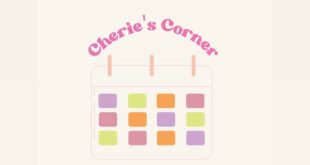By Alan K. Ota
CQ Roll Call / (MCT)
Democratic supporters of an increase in the federal minimum wage believe voter initiatives for wage boosts in several states can add momentum to the effort in Congress even if Republicans sweep next week’s midterm elections.
“If it comes up, it will pass,” said Rep. Robert C. Scott, D-Va., “There is broad public support for an increase.” A CBS and New York Times poll last month found 70 percent of respondents supported President Barack Obama’s proposal.
Aides in both parties say there is little chancefor a deal in the lame-duck session to revive a proposal by retiring Sen. Tom Harkin, D-Iowa, to increase the hourly minimum wage from $7.25 to $10.10. GOP lawmakers such as Rep.Rob Woodallof Georgia, chairman of the Republican Study Committee, say their party will be unified to oppose such legislation next year. Both sides blame one another for the ongoing stalemate on a procedural deal to structure debate on the bill and pendingamendments.
But supporters such as Harkin said they believe there will be a shift in momentum next month, when voters will decide the fate of state minimum-wage increases that are on the ballot in Alaska, Arkansas, Nebraska and South Dakota.
“I am confident that on Election Day, state ballot initiatives to raise the minimum wage will be successful, giving strong momentum to efforts to enact a stronger federal minimum wage in the weeks and months to come,” Harkin said.
And some observers say a new Republican Senate majority in the 114th Congress may see a political advantage in bringing the measure up for a floor vote because it will clear the issue away heading into the next election cycle.
Former Utah Republican Sen. Robert Bennett predictedMinority LeaderMitch McConnellof Kentucky, if anointed majority leader, would allow a vote on the minimum wage increase, probably as a floor amendment on labor-related legislation. “The idea that he would use any kind of parliamentary maneuver to prevent a vote on minimum wage, I think, is wrong. … Yeah, you will have a vote on it,” said Bennett.
Under a GOP majority, aides for both parties, say the minimum wage increase likely would come up as an add-on to one of a number of potential House-passed GOP fiscal priorities, such as proposals to allow compensatory time off in lieu of overtime pay, or to raise the work-week floor from 30 hours to 40 hours for workers eligible to receiveemployer-mandated health care coverage.
Under a possible GOP Senate majority, Democrats would need at least 11 GOP votes _ if the GOP conference has 51 members _ to invoke cloture on a minimum-wage amendment.
Democrats are hoping there will be increased pressure on 24 GOP senators that face re-election in 2016 to at least support cloture. Last April, Bob Corkerof Tennessee was the lone Republican to join Democrats in supporting cloture on a motion to proceed to Harkin’s bill.
Although many conservatives oppose the proposal, some political observers say Democrats have a shot at peeling away some Republicans to invoke cloture – and allow the proposal to be decided by simple-majority vote – if the issue gains traction as a theme in key congressional races in the next cycle.
“Republican senators might allow a vote on a minimum wage amendment, and allow it to be approved. They would let House Republicans shoulder the burden of potentially killing it,” said Ross Baker, a political scientist at Rutgers University.
Baker said Republicans recall that Democrats in both chambers used a minimum wage proposal as thelinchpin of the platform they used to take over the House and Senate in the 2006 elections. The last minimum wage increase was enacted in 2007, under President George W. Bush.
A Congressional Budget Office analysis of the Harkin plan helped to derail the measure, as Republicans pointed to the projection that the wage increase could reduce employment by some 500,000 jobs _ the midpoint of a broad range for the potential jobs impact that CBO projected. But proponents say they believe a new look at the measure in the 114th Congresswill envision fewer job losses.
For example, David Cooper, an economist at the Economic Policy Institute, a liberal think tank, said a CBO projection of job losses would be diluted by improvements in the employment picture, with the economy adding 226,000 jobs per month this year, which some analysts say has left the market for hiring relatively tight. “As unemployment goes down, we would expect to see wages go up. And in states that have raised the minimum wage, the CBO might find fewer negative effects on employment,” Cooper said.
___
(c)2014 CQ Roll Call
 The Spectator The independent student newspaper of Valdosta State University
The Spectator The independent student newspaper of Valdosta State University





